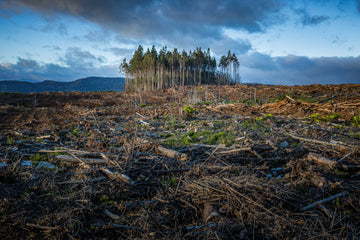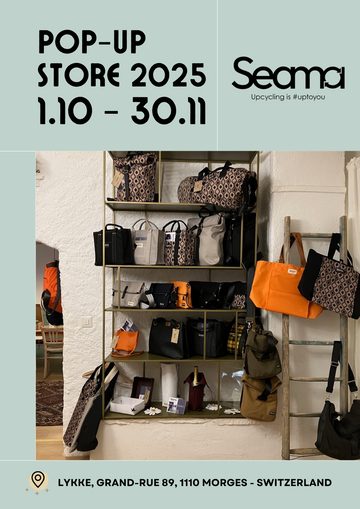
Climate change is a reality today with higher temperatures across the planet with increasingly frequent extreme events in every corner of the world. Scientists, governments and institutions are raising the alarm and concern for the consequences is at its highest. The responsibilities for this “global warming” are the growing emissions of C02 and climate-altering gases connected to industrial processes using fossil fuels. There is an immediate need to change to avoid worsening the conditions of the planet, compromising our agriculture and our environment and ultimately our health.
We were speechless when we learned about the high emissions of the fashion industry. According to a study by the Ellen MacArthur Foundation, “A new textiles economy: redesigning fashion's future (2017)”, the fashion industry is responsible for more gas emissions than the aviation and maritime industries combined.
Really impressive!
In addition to this, there is also the pollution of the air, water, soil with the loss of biodiversity: this is the result of production methods that use enormous quantities of water, pesticides and chemical residues to dye and treat fabrics and last but not least, the enormous amount of waste sent to landfill or incinerated.
This has to stop. We believe that to be elegant and fashionable we do not have to destroy our planet. We need to radically transform the fashion industry and the way we produce, use and throw away our clothes: this is why it is important to move from a linear production system, "take, produce, throw away" to a circular fashion system.
The pillars of circular fashion are:
- Most used
- Made to be remade again
- Made from recycled and/or renewable resources
We created Seama interpreting this change. We recover and transform unused clothes and textile stocks and transform them with design and creativity into bags and accessories. This is our upcycling. We work to limit the use of new materials and when we do so we commit to using materials that come from recycling or renewable materials. In addition to this, we pay maximum attention to the working conditions of our artisans, guaranteeing them decent wages and allowing them to express their creativity by working in their environment. We strongly believe in this change and we want to make our contribution to the circular economy of fashion.




